Index looks at America the beautiful, the most powerful country in the world through the words of the people who know it best


Index looks at America the beautiful, the most powerful country in the world through the words of the people who know it best
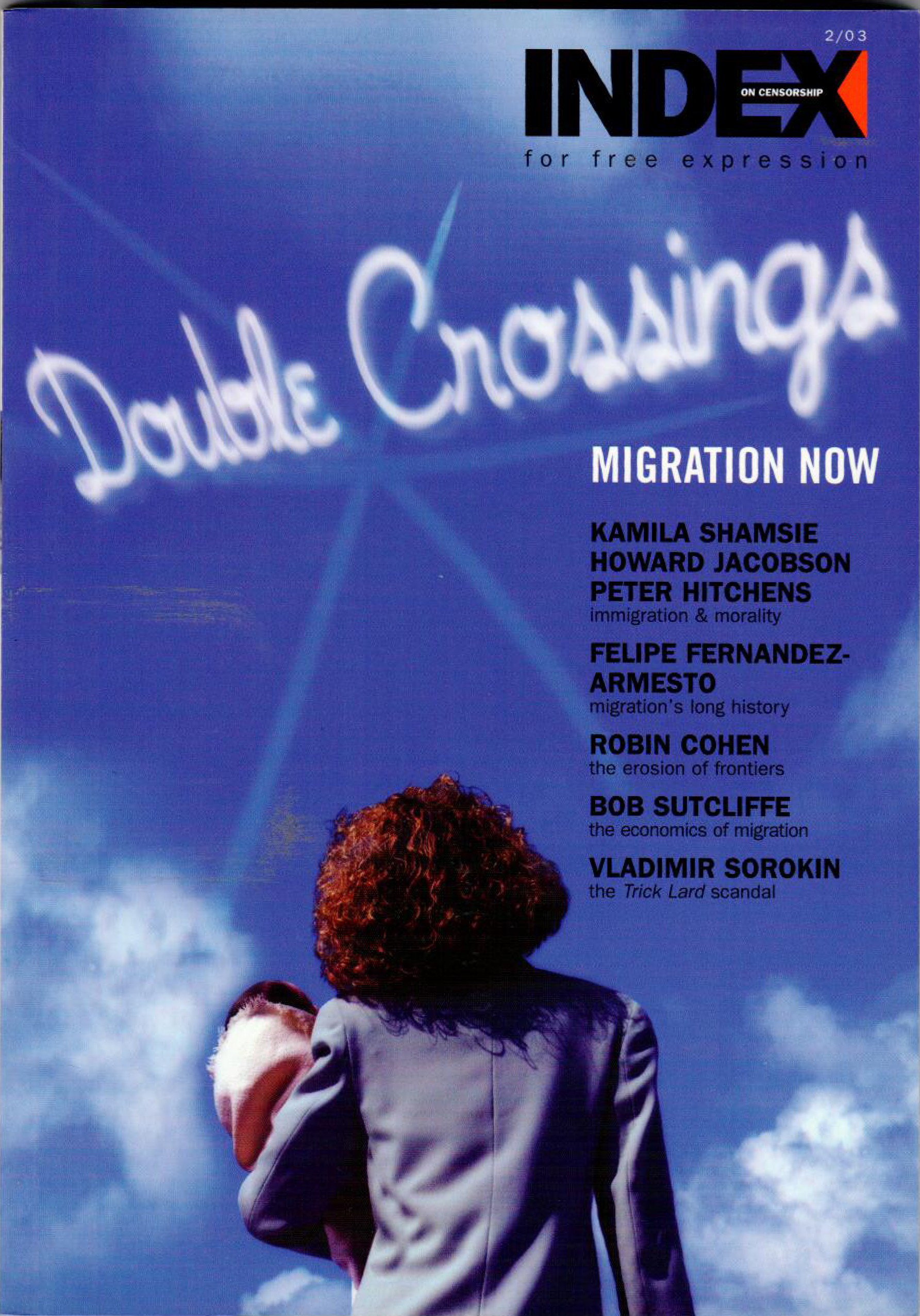
In this issue, Index tries to distinguish between the rhetoric and the reality on migration and start a debate shorn of the vicious language of tabloid headlines.

Index takes a look inside George W’s “Axis of Evil” and at the people who will, inevitably, become the “collateral damage” in the event of war.

Death comes in many guises, not all of them related to the physical body. In this issue Index examines death in all its varieties.

Index opens its pages to the voices of the diaspora, new and old, from Europe, Asia, Africa, Latin America and the Middle East, some internationally known, others emerging in public for the first time.
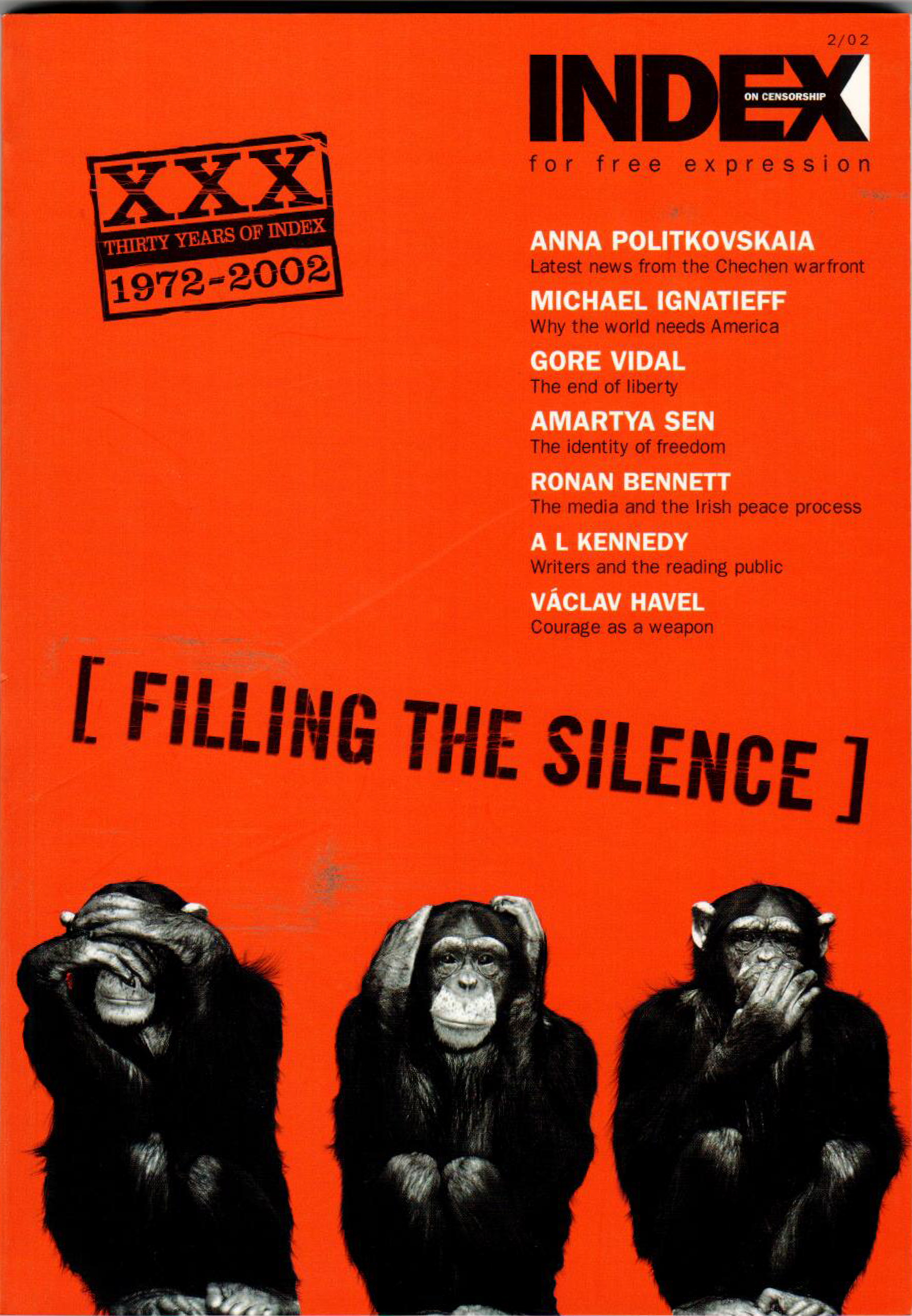
After 30 years, a magazine like Index should be redundant. It’s a disgrace that we haven’t closed it down and that you still feel the need to read it.
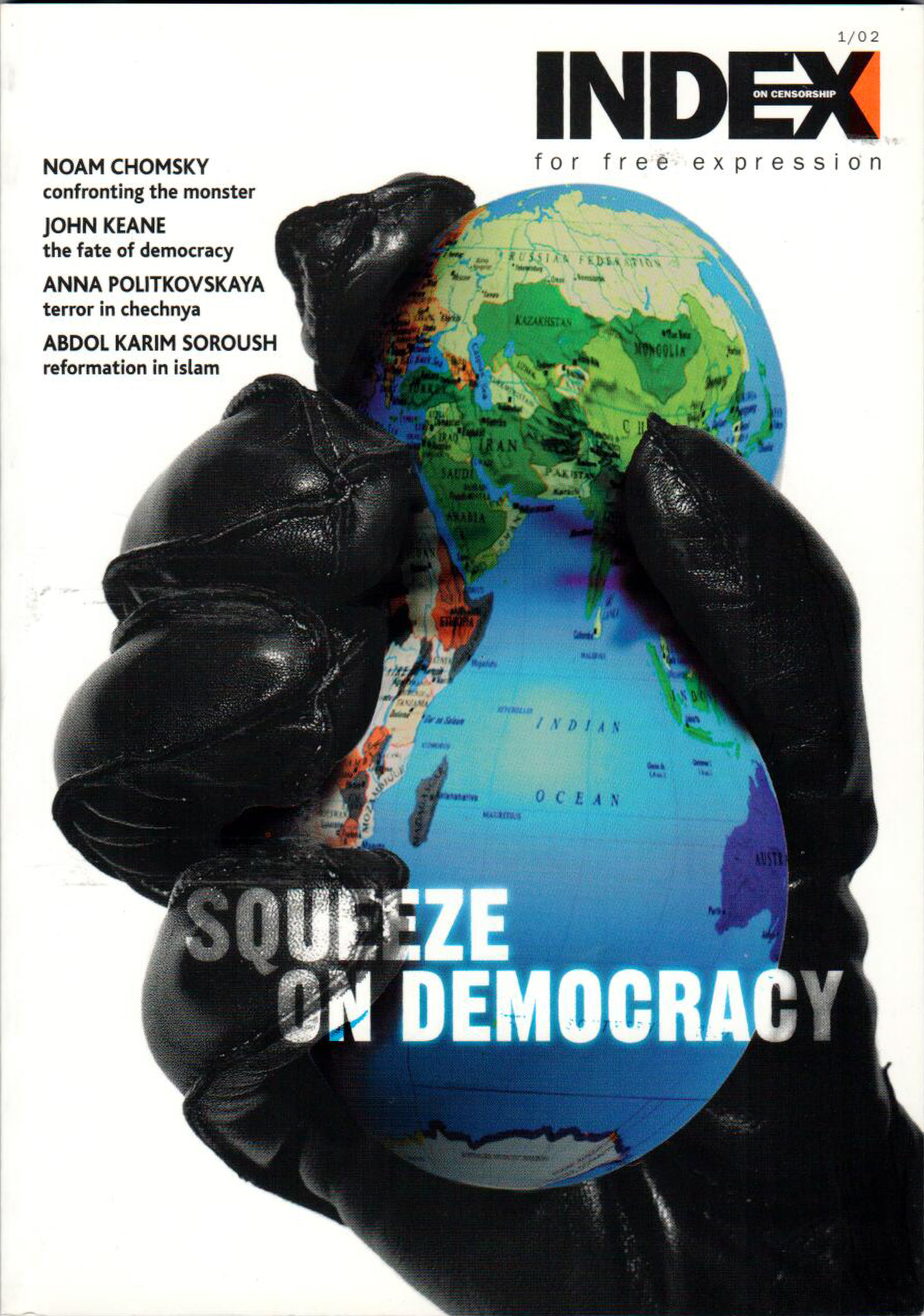
Index explores the crisis of democracy posed by the joint forces of terrorism and globalisation.
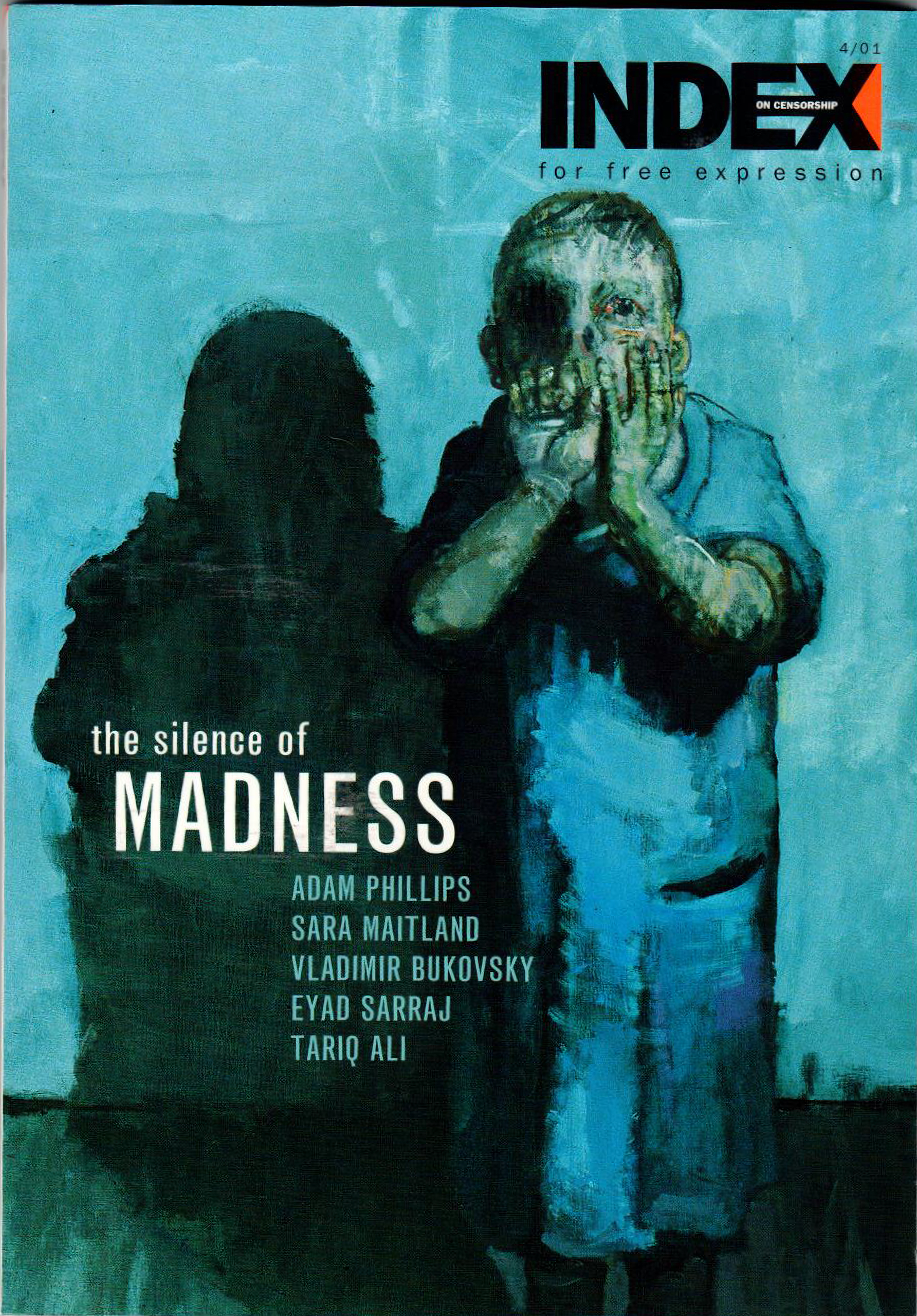
In this issue, Index on Censorship examines the issues around mental health and free expression.
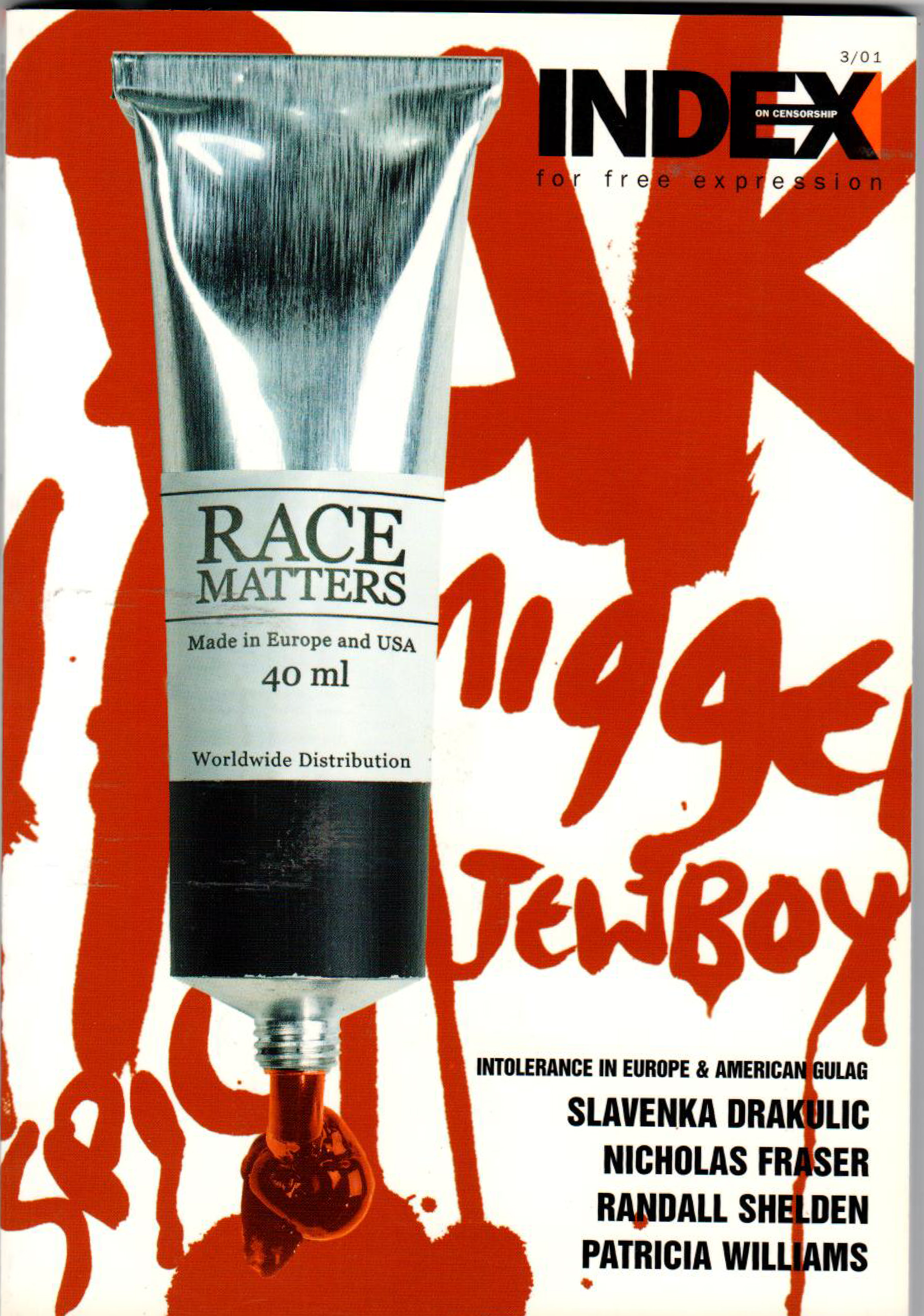
In this issue, Index asks why intolerance is rising and what it is we have to fear?
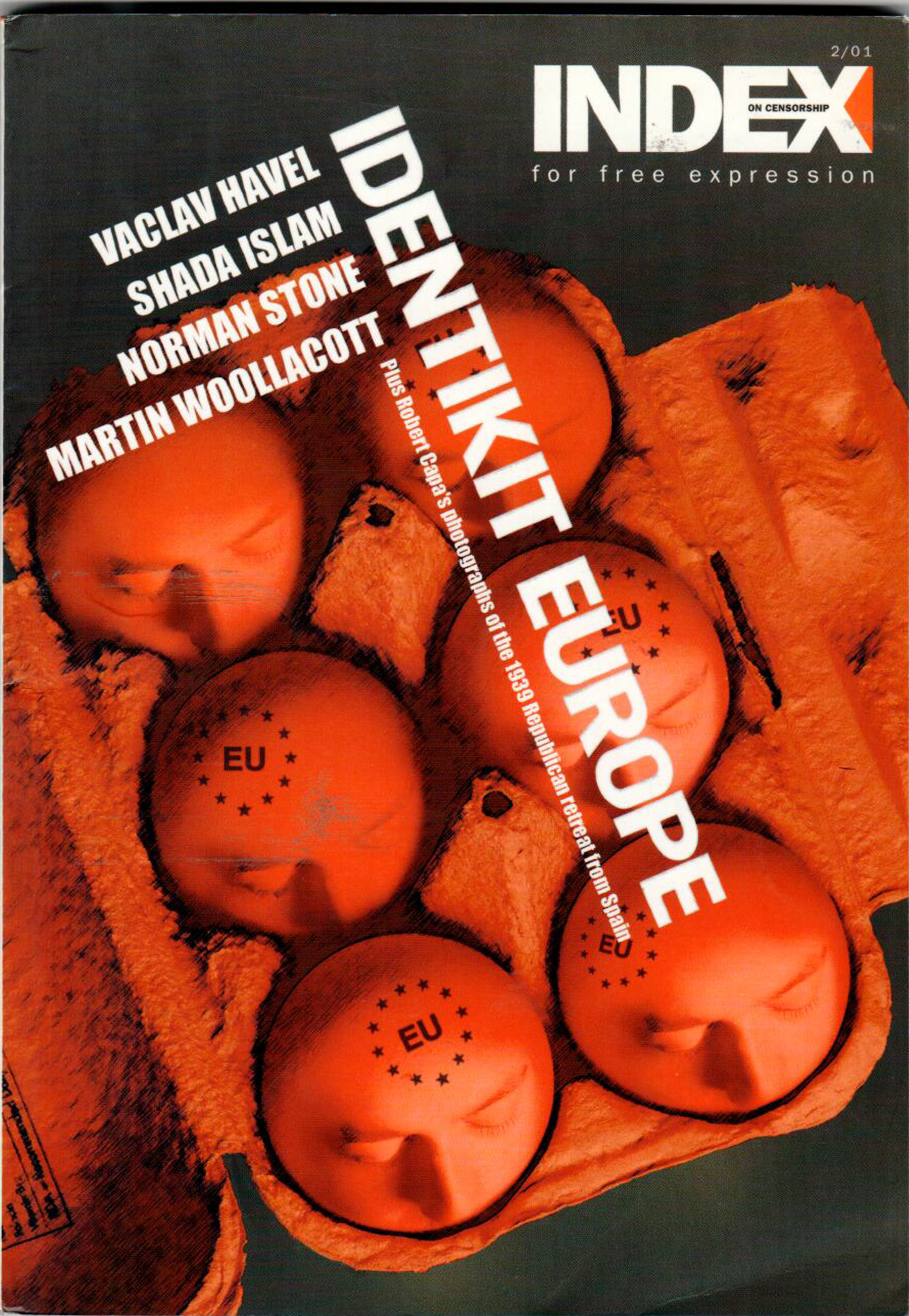
In this issue, Index explores what we mean when we talk of a “European identity”. Is the EU simply a white man’s club? Or is there more to it than that? Who is Europe?
A quarterly journal set up in 1972, Index on Censorship magazine has published oppressed writers and refused to be silenced across hundreds of issues.
The brainchild of the poet Stephen Spender, and translator Michael Scammell, the magazine’s very first issue included a never-before-published poem, written while serving a sentence in a labour camp, by the Soviet dissident Aleksandr Solzhenitsyn, who went on to win a Nobel prize later that year.
The magazine continued to be a thorn in the side of Soviet censors, but its scope was far wider. From the beginning, Index declared its mission to stand up for free expression as a fundamental human right for people everywhere – it was particularly vocal in its coverage of the oppressive military regimes of southern Europe and Latin America but was also clear that freedom of expression was not only a problem in faraway dictatorships. The winter 1979 issue, for example, reported on a controversy in the United States in which the Public Broadcasting Service had heavily edited a documentary about racism in Britain and then gone to court attempting to prevent screenings of the original version. Learn more.